GUMA MD ACCUSED OF ILLEGAL SURVEY
By Mahmud Tim Kargbo
Families Allege Encroachment on Ancestral Property
Freetown, Sierra Leone – A major land dispute has erupted at Mile 13 along the Freetown Peninsular, where multiple families have accused the Managing Director of Guma Valley Water Company, Maada Kpenge, of unlawfully surveying their ancestral land without permission.
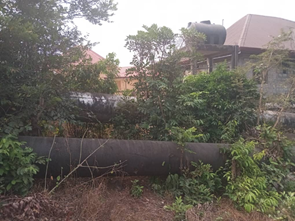
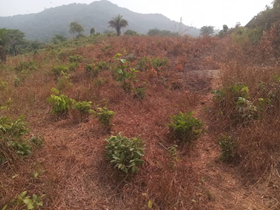
The Kamara, Dumbuya, Sesay, Jalloh, Jaward, Barrie, Conteh, and Bangura families claim they inherited the land from their great ancestors and possess legal documentation to prove ownership. According to family representatives, Kpenge and his team conducted a survey of the land but left before they could be confronted about the purpose of the exercise.
A Long History of Legal Ownership
A spokesperson for the affected families stated that in 2018, they submitted their land documents to the Ministry of Lands, Housing, and Country Planning for verification. Following due diligence by the then-Minister, Dr. Dennis Sandy, and his technical team, the families were advised to regularise their documents.
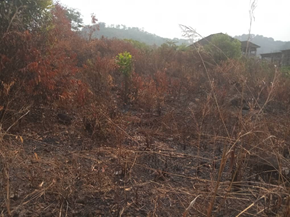
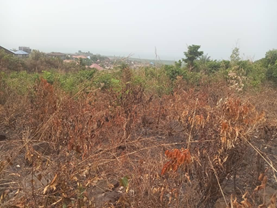
“We adhered to the advice and carried out a GPS survey. The Ministry confirmed that our land was not part of Guma Valley Water Company’s property and issued us a signed land plan in 2019,” the spokesperson explained.
Further verification revealed that a natural stream separates their land from Guma Valley Water Company’s designated area. Based on this, the families proceeded with their legal conveyance through the Office of the Administrator and Registrar General (OARG).
Harassment and Arrests
Despite obtaining all necessary legal documentation, the families allege that workers hired to clear the land were arrested by officers from the Criminal Investigation Department (CID) and the National Protection Agency (NPA).
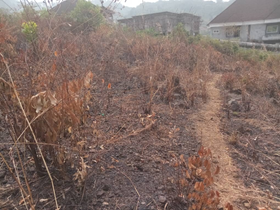
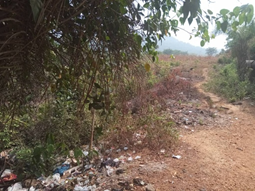
“When we inquired about the arrests, the Ministry of Lands confirmed that they had no involvement, and as far as they were concerned, the land belongs to us,” a family representative explained.
The families claim that after meeting with Kpenge, he requested their documents for verification. Upon confirming their authenticity with the Ministry of Lands, he reportedly suggested relocating them—an offer they firmly rejected. The CID later confirmed the legitimacy of the families’ claim and released the detainees, while neither Guma Valley Water Company nor the NPA could provide documents supporting their counterclaim.
Media Misinformation Allegations
In a separate development, the families accused Kpenge of attempting to manipulate public perception by inviting journalists to the site and falsely claiming the land belonged to Guma Valley Water Company.
“He told journalists that if we occupied the land, we would destroy the water company. However, fact-checking proved his statements to be misleading,” a family member disclosed.
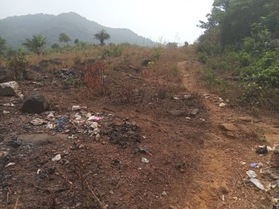

They also questioned why Guma Valley Water Company had not taken action against structures built much closer to its dam. According to them, Kpenge allegedly responded that those buildings were already in place, whereas the families had not yet begun construction.
Parliament and Ministry of Lands Weigh In
The matter has gained official attention, with the Ministry of Lands and Parliament conducting multiple site visits to verify property boundaries. Their findings reportedly support the families’ claim, confirming that historical boundary markers place their land approximately nine miles from Guma Valley Water Company’s designated area.
A History of Attempts to Claim the Land
According to the families, this is not the first attempt by individuals within Guma Valley Water Company to lay claim to their land. Allegations date back to 2018-2019, when employees reportedly made similar attempts, which were successfully resisted.
“It appears that certain individuals within Guma Valley Water Company have always had an interest in our land, and now, with Kpenge in charge, they are using him to continue their efforts,” the spokesperson added.
The Call for Justice
The families are now calling on the government, relevant authorities, and civil society organisations to intervene and prevent what they describe as an unlawful attempt to seize their legally owned property.
As tensions rise over land ownership and property rights in Sierra Leone, this case highlights the ongoing struggle between private landowners and state institutions. With all legal documents in place, the families insist they will not back down and will continue to fight for their ancestral land.
Kpenge Responds to Allegations
In response to the allegations, Guma Valley Water Company Managing Director, Maada Kpenge, defended his actions, arguing that legal documentation alone does not necessarily determine rightful ownership.
“If someone walks around and gets documents for a specific piece of land, that doesn’t mean they are the rightful owner,” Kpenge stated in a phone interview.
He further claimed that Guma Valley Water Company has occupied the land since colonial times and questioned the legitimacy of private ownership claims.
“How can one man get over fifty acres of land? That isn’t possible,” he argued. “They think I am fighting to get this land for my personal use. Only a very foolish person would work at Guma Valley Water Company and fight for its land for personal gain. Water is crucial for the people in the city. If we sit idly by and allow these people to take Guma Valley Water Company’s land, it will affect the dam.”
Kpenge also stated that his visit to the disputed site on Friday, 7 February 2025, was misinterpreted by the families.
“I was there yesterday with some people, and they assumed I was with investors. I was bombarded with several messages and calls, which I ignored because my reason for being there was not as they claimed.”
As this dispute unfolds, it raises broader concerns about land ownership, government oversight, and the balance between private property rights and public utilities. With both parties standing firm in their claims, the resolution of this case will likely set a precedent for future land disputes in Sierra Leone.
The government and judicial authorities now face the challenge of determining rightful ownership and ensuring that justice prevails in this contentious battle over land at Mile 13.